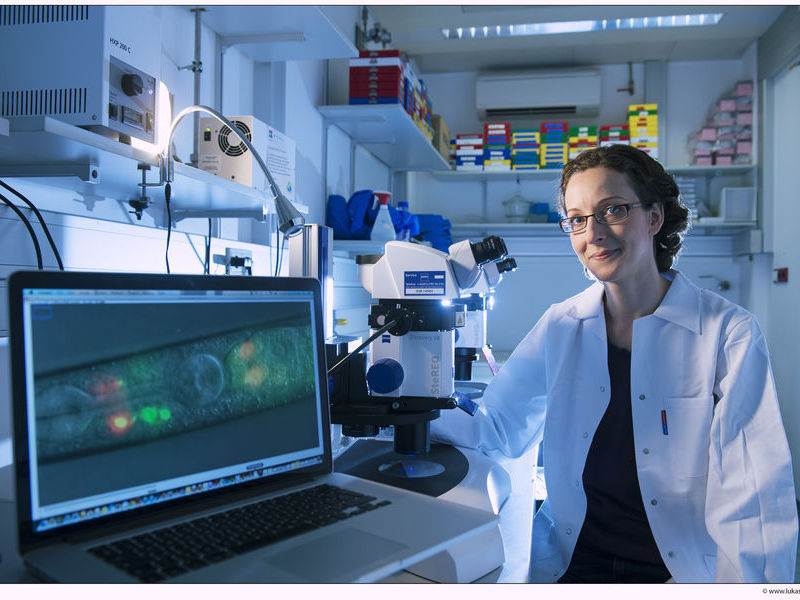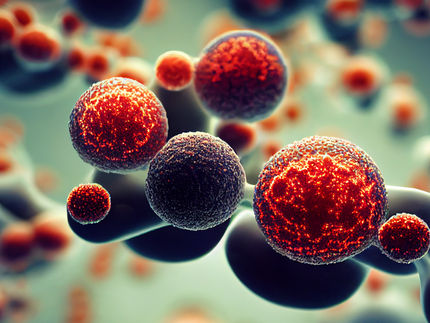Stem cell study could pave the way to treatment for age-related muscle wasting
A team led by developmental biologist Professor Christophe Marcelle has nailed the mechanism that causes stem cells in the embryo to differentiate into specialised cells that form the skeletal muscles of animals' bodies. The scientists published their results in Nature.
Scientists world wide are racing to pin down the complex molecular processes that cause stem cells in the early embryo to differentiate into specialist cells such as muscle or nerve cells. The field has the potential to revolutionise medicine by delivering therapies to regenerate tissue damaged by disease or injury.
Differentiation happens soon after fertilisation, when embryonic cells are dividing rapidly and migrating as the animal's body takes shape.
Professor Marcelle's team analysed the differentiation of muscle stem cells in chicken embryos. The mechanisms in birds are identical to those in mammals, so the chick is a good model species for understanding the mechanisms in humans, says team member and the paper's lead author, Anne Rios.
The scientists investigated the effect of a known signalling pathway called NOTCH on muscle differentiation. They found that differentiation of stem cells to muscle was initiated when NOTCH signalling proteins touched some of the cells. These proteins were carried by passing cells migrating from a different tissue–the neural crest–the progenitor tissue of sensory nerve cells. Muscle formation in the target stem cells occurred only when the NOTCH pathway was triggered briefly by the migrating neural crest cells.
"This kiss-and-run activation of a pathway is a completely novel mechanism of stem cell specification which explains why only some stem cells adopt a muscle cell fate," Ms Rios said.
Professor Marcelle said that more than 2 per cent of the population was affected by muscle dysfunction. "Muscle frailty in ageing and disease imposes a huge economic burden, so it is critical to explore novel avenues of research that could lead to new treatments," he said.
He said the team would now focus on unravelling the mechanisms of embryonic muscle cell differentiation at the molecular level as a necessary step to regulating regeneration of the muscles in human patients.
Most read news
Other news from the department science

Get the life science industry in your inbox
By submitting this form you agree that LUMITOS AG will send you the newsletter(s) selected above by email. Your data will not be passed on to third parties. Your data will be stored and processed in accordance with our data protection regulations. LUMITOS may contact you by email for the purpose of advertising or market and opinion surveys. You can revoke your consent at any time without giving reasons to LUMITOS AG, Ernst-Augustin-Str. 2, 12489 Berlin, Germany or by e-mail at revoke@lumitos.com with effect for the future. In addition, each email contains a link to unsubscribe from the corresponding newsletter.
Most read news
More news from our other portals
Last viewed contents
Familial_dysautonomia
Phenylketonuria
Myelodysplastic_syndrome
Pulmonary_hypertension























































